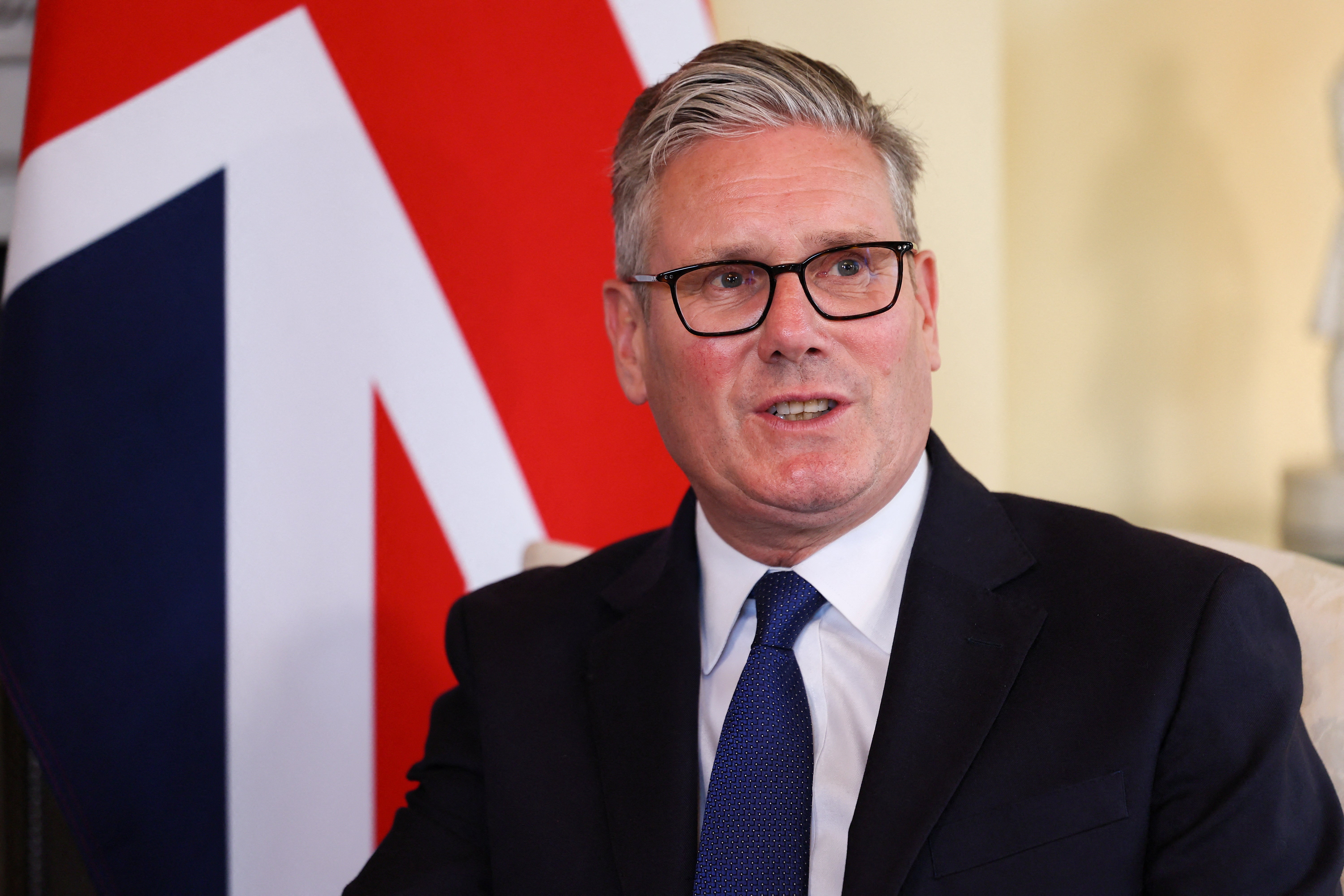From reproductive rights to climate change to Big Tech, The Independent is on the ground when the story is developing. Whether it’s investigating the financials of Elon Musk’s pro-Trump PAC or producing our latest documentary, ‘The A Word’, which shines a light on the American women fighting for reproductive rights, we know how important it is to parse out the facts from the messaging.
At such a critical moment in US history, we need reporters on the ground. Your donation allows us to keep sending journalists to speak to both sides of the story.
The Independent is trusted by Americans across the entire political spectrum. And unlike many other quality news outlets, we choose not to lock Americans out of our reporting and analysis with paywalls. We believe quality journalism should be available to everyone, paid for by those who can afford it.
Your support makes all the difference.
Read more
Days after the chancellor was warned of a £50bn black hole in the government’s finances, the Bank said Ms Reeves’s national insurance hike and the rise in the minimum wage were helping to push up the cost of the supermarket shop.
There was relief for borrowers, as the interest rate was cut to 4 per cent.
But the Bank said headline inflation would accelerate to 4 per cent by September, while inflation on food is set to hit 5.5 per cent between now and Christmas – putting a squeeze on household budgets.

open image in gallery
Chancellor Rachel Reeves has welcomed the rate cut (PA)
As a result, the Bank’s governor, Andrew Bailey, signalled that interest rates would fall more slowly in coming months, saying they were “still on a downward path” but that changes would have to be “made gradually and carefully”.
Amid fears that the rate cut could stoke inflation, the Bank’s Monetary Policy Committee was split and was forced to take a second vote for the first time in its history in order to break the deadlock.
The forecasts pile more pressure on the chancellor, less than 24 hours after Sir Keir Starmer pledged that this autumn’s Budget will make sure “people feel better off”.
Ms Reeves welcomed the rate cut, saying it would help to “bring down the cost of mortgages and loans for families and businesses”.
But she also left the door open to tax hikes in the Budget, after leading economists said she may have to raise levies, cut public spending, or tear up her fiscal rules in order to fill a multibillion-pound black hole.
She also came under pressure from former Labour prime minister Gordon Brown, who suggested increasing gambling taxes to fund the abolition of the two-child benefit cap and taking defence spending out of her borrowing rules to free up economic “headroom”.
But the Tories said the national insurance rise coupled with “reckless borrowing” had “pushed inflation well above target”.

open image in gallery
Keir Starmer has said that the Budget in October will ‘focus very much on living standards’ (PA)
Alongside the announcement of a cut in interest rates, the Bank of England said the chancellor’s £25bn national insurance raid had pushed up food prices. Higher wage costs are contributing to food inflation, partly because of an increase in the minimum wage and the impact of the increase in national insurance contributions (NICs).
A “relatively high proportion of staff” in food manufacturing and retail are paid the national living wage, or an amount close to it, according to the Bank’s latest monetary policy report. The national living wage increased by 6.7 per cent in April.
“Furthermore, overall labour costs of supermarkets are likely to have been disproportionately affected by the lower threshold at which employers start paying NICs, in part because a relatively high proportion of supermarket staff is employed part-time,” the report added.
Most of the wage costs, along with a proportion of the cost of higher NICs, have been passed on to consumers, putting up prices by around 1 to 2 per cent, with shoppers facing further hikes later this year.
The controversial decision to raise NICs has also “weighed on growth”, according to businesses, the report said.
Business chiefs also expressed concern to the Bank about other government policies, including deputy prime minister Angela Rayner’s Employment Rights Bill.
Helen Dickinson, chief executive of the British Retail Consortium (BRC), said: “Government policy will add £7bn to retailer costs this year, from higher employment costs to the introduction of a new packaging tax. Food prices have already been climbing steadily, and the BRC has warned this is only the beginning.
“If the autumn Budget once again lands on the shoulders of retailers, then it will only serve to fan the flames of food inflation, with poorer families being hit the hardest by the Treasury’s decisions.”

open image in gallery
Andrew Bailey, the governor of the Bank of England, has signalled that interest rates will fall more slowly in the coming months (PA)
James Smith, of the Resolution Foundation economic think tank, said: “There was bad news for the chancellor from the Bank of England today as its forecasts remain more pessimistic on growth than [those of] the Office for Budget Responsibility, suggesting bad news is coming at the autumn Budget.
“Bank rate is now 4 per cent – its lowest level since March 2023. While this will be broadly welcomed by mortgagors, around 700,000 families will still see repayments rise as they come off five-year fixed-rate deals.
“There was also bad news from the Bank of England for families struggling with the cost of living: inflation is set to be higher than previously expected, with food inflation rising further in the coming months, and real wage growth set to hit a brick wall this year.”
